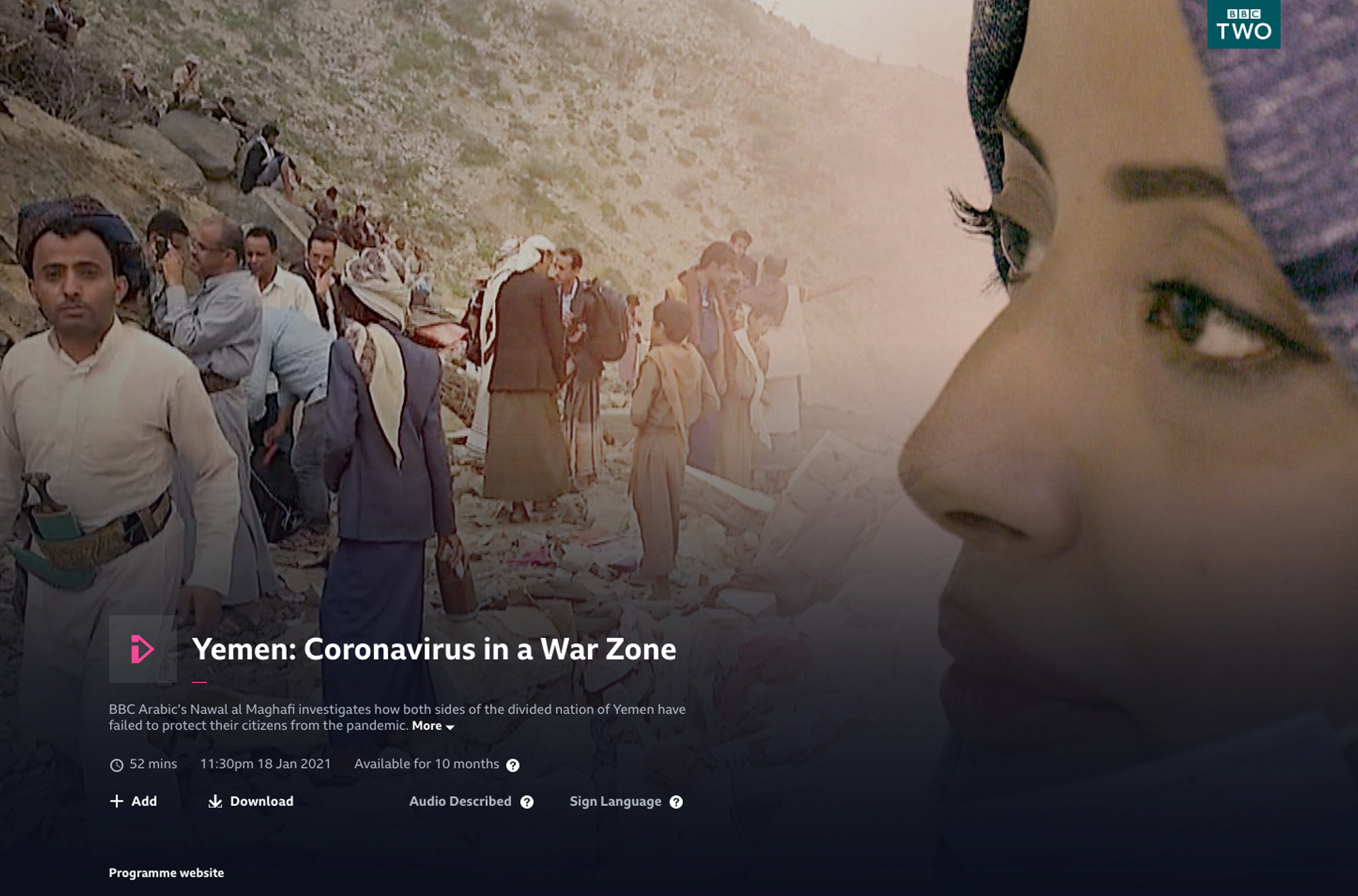
Yemen: Coronavirus in a War Zone, BBC2, 18 January 2021, 52 minutes. Watch it and take action!!
BBC Arabic’s Nawal al Maghafi investigates how both sides of the divided nation of Yemen have failed to protect their citizens from the pandemic. As coronavirus has spread across the world, nowhere seems more vulnerable than Yemen. Now in its sixth year of war, the country is facing starvation and the world’s worst humanitarian crisis. Nawal al Maghafi was the first reporter to enter Yemen since the outbreak of Covid-19.
Yemen is one of the world’s poorest countries, laid low by years of war and abandoned by the international community. In the north, the Houthi government appears to be in denial about the Covid-19 crisis and conspiracy theories are rife, while in the south, there is infighting between officials, and rivalry with foreign health workers. Threats against the health workers of Médecins Sans Frontières forced them to quit Aden, the capital in the south, leaving it without a single Covid-19 hospital ward.
Saudi Arabia bombs Yemen something like 12 times a day and has done so since 2015. This film investigates what happened when coronavirus hit Yemen’s health system, already badly damaged by war. It looks at how the authorities in both the north and south have tried to cover up their mismanagement, but also at the widespread powerlessness here among those trying desperately to help others.
In Sana’a, the Houthi capital in northern Yemen, the authorities suppressed news of Covid cases, which resulted in an outbreak far larger than they could handle. For months they insisted there had been only four deaths and deprived the public of information about the real risks. Meanwhile, bodies were being buried at night and doctors were banned from saying what was going on inside hospital wards. The Houthi minister of health maintains they did not have a problem with sharing statistics but were trying to prevent panic amongst the Yemeni people.
In Aden, when coronavirus arrived in April 2020, hospitals were unprepared and turned away patients who showed symptoms. They were denied treatment and, in many cases, they died at home. There are no official mortality figures. Ghassan, a gravedigger in a Covid-19 cemetery, said he was overwhelmed by the number of bodies arriving for burial.
Abdulkareem became desperate after taking his father to four hospitals and being refused treatment in each one. At the fifth hospital, a young medic in training took pity and admitted him, but he died 15 minutes later. In this city of a million people, she was the sole doctor in the one hospital that accepted Covid-19 cases. In the whole of April, not one of her patients survived.
This documentary is a record of a crime against humanity. The strength of the women in this film is incredible. The condition of the eight-year-old child at the end demands a global emergency response. Call on your government to do something now, to support peace and to provide massive levels of support.



